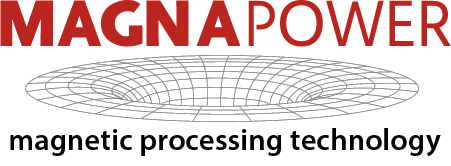Our policy is to provide and maintain safe and healthy conditions, equipment and systems of work for all our employees and to provide such information, training and supervision as they need this purpose.
We also accept our responsibility for the health and safety of other people who may be affected by our activities.
Adequate provisions for health and safety are essential to working life and the prevention of injury and losses are not only vital to Magnapower Equipment Ltd efficiency and success, but also in the best interest of all our employees and their families.
We therefore, aim to:
- Ensure that all employees are fully aware, through training, of their own individual responsibilities for safety and of the safety rules and procedures which are relevant to amendments will be notified to all staff on issue.
- Maintain necessary and up to date knowledge and information and developments concerned with health and safety at work.
- Ensure the legal requirements are met.
- Ensure new methods, machinery and procedures are examined to identify possible hazards so that protective measures may be taken.
We cannot stress too much the importance of co-operation from the workforce and the need for good communications at all levels within the company.
The allocation of duties for safety matters and the particular arrangements which we will make to implement the policy are set out in this statement. Neglect of health and safety requirements will be regarded as seriously as any other disciplinary offence.
Magnapower Ltd Recycling and Environmental Policy Statement
Magnapower Ltd has been implementing a successful recycling policy for a number of years and has seen a positive benefit to recycling with an active company policy on reducing landfill waste. We have created and will continue to develop our existing Environmental Policy by minimising the production of waste through good working practice, economic recycling, or reuse where possible.
Magnapower Ltd recognises the need for sustainable development and continually aims to improve the environmental effect of its activities.
To achieve this we will establish sound environmental management by:
- Meeting or improving upon relevant legislative, regulatory and environmental codes of practice.
- Developing objectives that target environmental improvements.
- Incorporating environmental issues into the decision-making process.
- Developing a relationship with suppliers and contractors so that we all recognise our environmental responsibilities.
- Educating staff so that they carry out their activities in an environmentally responsible manner.
- Promoting an appreciation of the company’s environmental performance among customers, employees and the general public.
Providing for the effective use of resources by:
- Advising customers on the efficient use of energy and other utilities.
- Promoting waste minimisation whenever economically viable.
- Promoting the efficient use of resources, energy and fuel throughout the company’s operations.
Co-operate with:
- The communities in which we operate.
- Customers.
- The government, regulatory bodies and other interested parties with the shared vision of being a good and trusted neighbour.
Magnapower have developed a waste management strategy, which accommodates recycling procedures and initiatives. All employees are encouraged to dispose of any waste correctly and we will continue to develop and improve the range and scope of material recycling schemes.
Energy conservation, by turning off lights when rooms are going to be unoccupied, only turn on machinery and manufacturing equipment over the period when it is required.
- Waste cardboard and paper, cans, bottles and plastic are all collected, sorted and stored prior to being recycled.
- Aluminium and steel waste, from our machining facility, is collected and reprocessed.
- We promote economy in the use of paper and other consumables.
- Minimise waste by encouraging the exchange, and reuse of equipment and material.
- Batteries, circuit boards, electronic components and fluorescent tubes are segregated and sent to official reprocessing sites.
- Toner and inkjet cartridges and mobile phones are collected and sent to charity
- Old computers are where possible sent re-use and redistribution.
Magnapower Statement on the WEEE & RoHS Directives
As a company, Magnapower actively embraces its legal and environmental obligations outlined by the WEEE and RoHS directives. We’ve been recycling waste products for many years and see these regulations as a positive and responsible change to protect the environment.
WEEE Directive
The Waste Electrical and Electronic Equipment (WEEE) Directive was agreed on 13 February 2003, along with the related Directive 2002/95/EC on Restrictions of the use of certain Hazardous Substances in electrical and electronic equipment (RoHS).
The Waste Electrical and Electronic Equipment Directive (WEEE) aims to minimise the impacts of electrical and electronic equipment on the environment during their life times and when they become waste. It applies to a huge spectrum of products. It encourages and sets criteria for the collection, treatment, recycling and recovery of waste electrical and electronic equipment.
All products manufactured by Magnapower Ltd have manufacturers label which gives a contact for individuals who are unsure about the correct procedure when the product has reached its “end of use”. As outlined in the WEEE directive Magnapower Ltd will be happy to give you information about local organisations that can reprocess the products, or alternatively all products that have reached “end of use” can be returned to Magnapower and will be reprocessed correctly.
RoHS Directive
Magnapower Ltd and its suppliers have phased out the use of certain hazardous substances identified in the European Union’s Restriction of Hazardous Substances (RoHS) directive. The RoHS directive limits the use of certain hazardous substances currently used in EEE manufacture, including lead, mercury, cadmium, hexavalent chromium, and halide-containing compounds PBB (polybrominated biphenyl) and PBDE (polybrominated diphenyl ether). Elimination of these substances will result in more environmentally friendly recycling of electronic equipment. For the products which Magnapower manufacture, the main area where products were affected was in the use of lead for manufacturing and assembling electronics circuit boards.
Use of Lead-Free Soldering Techniques
Magnapower Ltd practices lead-free (LF) manufacturing processes. LF solder is used on the surface-mount PCB manufacturing processes and also for hand soldering. The printed circuit boards (PCBs) used are either gold plated, or immersion tin plated, both of which use no lead. Historically the PCBs were hot air solder levelled (HASL) PCBs which used tin/lead based solder, but this process is no longer used.
RoHS Directives
The RoHS Directive will ban the placing on the EU market of new electrical and electronic equipment containing more than agreed levels of lead, cadmium, mercury, hexavalent chromium, polybrominated biphenyl (PBB) and polybrominated diphenyl ether (PBDE) flame retardants from 1 July 2006. There are a number of exempted applications for these substances. RoHS takes its scope broadly from the WEEE Directive. Manufacturers will need to ensure that their products – and their components – comply in order to stay on the Single Market. If they do not, they will need to redesign products.
The RoHS Directive came into force on 1st July
From 1st July 2006 any new electronic or electrical equipment sold in Europe could not contain hazardous substances in excess of the permitted levels. The emphasis of Magnapower Ltd design management program is not only compliance with existing or upcoming legal requirements such as the WEEE and RoHS directives but also meeting customer requirements to eliminate or minimize the use of certain substances in the existing products supplied and to design new products that are easily recyclable.

